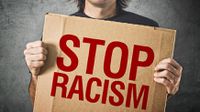
Since the birth of our constitutional democracy, the government has made numerous efforts intended to bring about substantive equality. This is realized in sport too through the implementation of quotas, which are a form of ‘affirmative action’ intended to address the under-representation of non-white South Africans in sports previously dominated by white players. Hence, the quotas in place today in rugby, cricket, and athletics.
These quotas recommend the minimum number of non-white players for each national team squad. This has led to much outrage and can be viewed as having had a damaging effect on sport in South Africa. Racial quotas in sport are a regressive measure that threaten the integrity of sport and could prove to be a tool of division rather than unity.
Making race a criterion for selection has the effect of subjecting sporting decisions to non-sporting criteria, including political objectives. Former Proteas captain Faf Du Plessis was called to account for the fact that the SA national cricket team had fielded only four instead of the required six non-white players in the first two test matches in late 2019 against England.
The skipper responded by saying that only form and not colour determined who should be on the team. This after he chose to play Rassie van der Dussen over Temba Bavuma. Du Plessis said the decision was based on the fact that Bavuma had been suffering a poor run of form and consistency over the previous four years. Although Van der Dussen was judged the better candidate, the decision led to a considerable backlash. Imagine being a cricket captain, coach or team selector and you have to use non-cricket criteria to select what should be your best cricket team!
Racial quotas in sport are also undesirable for leading to the stigmatisation of black, coloured or Indian players who make it to the very top of their sport. It is an insult to their hard work when they are labelled ‘quota players’ – players who only got their opportunity because of the colour of their skin as opposed to earning it on merit. This obviously carries the danger of there being divisions in our sports’ squads because of a lack of harmony between players arising from doubts about the legitimacy of team selections.
Racial quotas in sport are also undesirable for leading to the stigmatisation of black, coloured or Indian players who make it to the very top of their sport.
Our teams will not be able to perform at the highest level while grappling with political issues in the dressing room. Siya Kolisi, the first black captain of the South African national rugby team, the Springboks, once said: “I would not want to be picked because of my skin colour because that surely would not be good for the team.” Race-based discrimination in the selection of our sports teams harms the integrity of those teams. In fact, there is a winning argument to be made that it harms the integrity of all sport in South Africa.
Yet, former Sports & Recreation Minister Fikile Mbalula penalised national sport associations that failed to reach their quota targets. In 2016, he penalised Athletics South Africa, Cricket South Africa, Netball South Africa, and the South African Rugby Union by forbidding them from bidding to host international competitions. This was a massively regressive stance by the Minister. Hosting international tournaments does much for the development of sport in the country. The money, exposure, skills and experience gained from mixing in with the world’s best is crucial to the development of every sport in our country.
The legality of racial quotas in sport is questionable, too. South African professional athletes are regarded as employees in South African labour law and our labour law legislation specifically prohibits the application of race-based quotas as a form of affirmative action – yet the quota system persists. As colleague Chris Patterson has previously written, “non racialism”, as indicated by the prefix” non” means that race should not be “in any and all cases, used to determine the suitability of an individual”. In a truly non-racial democratic state – the one that South Africa intends to be – there can be no race-based law. There can be no “fair race-based discrimination”. All race-based law, in sport and elsewhere, hampers the progress we seek to make as a country towards the achievement of a non-racial, free, and democratic society of equal opportunity as envisioned in the constitution of the republic.
There can be no “fair race-based discrimination”.
Merit must surely trump skin colour. Whether in sport, education or the world of work, every individual should be selected on merit. Racial quotas in sport are an extremely regressive measure; they hamper the development of sport, cause unnecessary friction and contention between parties, bring the integrity of the sport into question and are at odds with our constitutional order.
The irony of bringing in further race-based law in order to help us move to a non-racial society is never lost on me either. It is outrageous, to say the least.
Cover image source available here.
